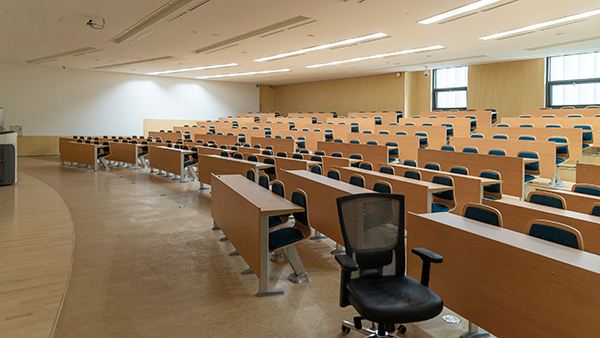By Martha Simmons
Correspondent, The Alabama Baptist
Sufficient unto the day is the evil thereof.”
Jesus’ message (Matt. 6:34) about not worrying about the future must seem particularly apt these days as higher education leaders try to forge a plan for the fall term that’s only weeks away.
As they try not to worry, Alabama’s Baptist institutions — University of Mobile, Judson College and Samford University — must still plan for an uncertain future.
“We always say, ‘The current plan is …,’” laughed University of Mobile President Lonnie Burnett. As for UM’s current plan, “We’re going to try to be on the ground, in dorms, the on-campus experience, as close to normal as it can be,” he said.
Burnett said he stays in frequent contact with Samford President Andrew Westmoreland and Judson President Mark Tew, and they are all dealing with the same uncertainties.
“We realize it will not be normal,” Burnett conceded. “We’ll have to follow the governor’s and health department guidelines. The tricky part for us is guessing what that looks like. As of today, we couldn’t do it.”
Unknowns include:
- At what rate the virus continues to spread when fall classes begin in late August
- Whether classrooms will be required to limit occupancy, and how to juggle in-person and online instruction to accommodate distancing requirements within available space
- The effects of long-term job loss and an anticipated recession on enrollment
- Whether larger classes such as general education courses — often held in auditoriums — will have to go online.
‘Biggest fear’
“Every college president’s biggest fear is being completely online again,” Burnett said. “That’s a worst-case scenario.”
More than two-thirds of high school graduates want an on-campus college experience, he said, and online courses are not seen as providing as much value for tuition dollars.
That’s if students have the money for tuition to start with.
A poll of some 500 high school seniors — conducted by the higher ed research firm Art and Science Group in the early days of the pandemic, March 17–20 — found that:
- Two-thirds were worried they would have to change their college plans.
- One in six was giving up on attending a four-year institution in the fall.
- 21% feared their families would no longer be able to afford their first-choice college because of a recession.
- 17% said they were likely to take a gap year next year or attend a program part time.
Poll results like these could spell trouble for colleges and universities across the United States.
In March, Moody’s, a credit rating agency, downgraded its U.S. higher education outlook from “stable” to “negative” due to disruptions caused during the spring by the novel coronavirus. In order for Moody’s to adjust the rating back to “stable,” markets must recover and higher education institutions must see robust enrollment in the fall.
“We don’t know what our fall will look like,” Burnett said, though UM’s mid-May enrollment figures looked promising.
But many students nationwide are taking a “wait and see” approach and have not yet paid a down payment on their tuition, he said.
Moreover, statistics show that half of all children have at least one parent who has lost a job, been furloughed or have had his or her work hours cut, he said. The great unknown, Burnett said — “Will there be more people losing their jobs?”
‘All over again’
Even if the economy recovers and most people get back to work, there’s another big “what if” that keeps college and university leaders up at night, Burnett said.
“The other troubling scenario is we get back on ground with our classes and campus activities, the virus spikes, and we have to shift to online course delivery again.”
Read more about Alabama Baptist college plans for fall by clicking here.






Share with others: